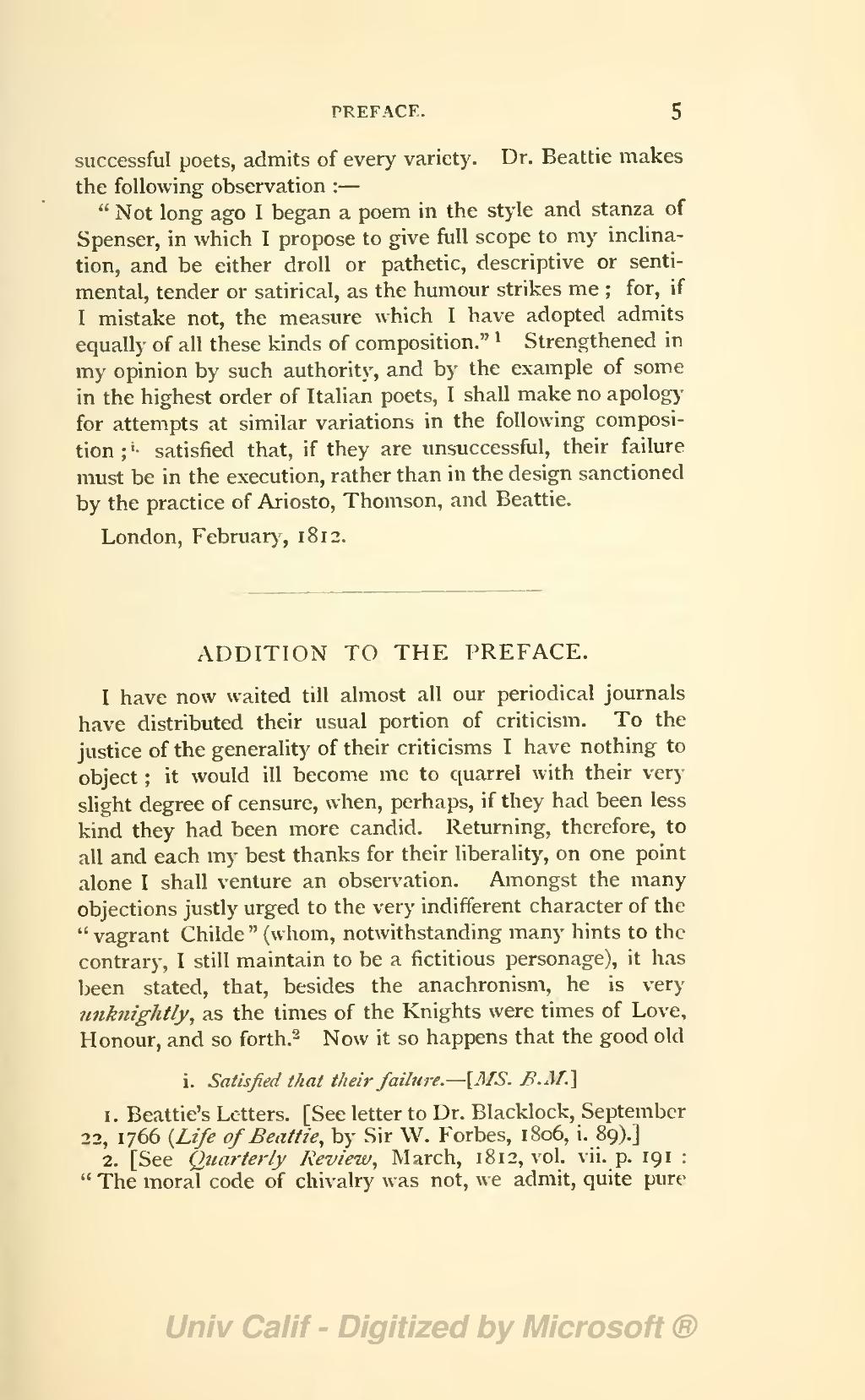successful poets, admits of every variety. Dr. Beattie makes the following observation:—
"Not long ago I began a poem in the style and stanza of Spenser, in which I propose to give full scope to my inclination, and be either droll or pathetic, descriptive or sentimental, tender or satirical, as the humour strikes me; for, if I mistake not, the measure which I have adopted admits equally of all these kinds of composition."[1] Strengthened in my opinion by such authority, and by the example of some in the highest order of Italian poets, I shall make no apology for attempts at similar variations in the following composition;[2] satisfied that, if they are unsuccessful, their failure must be in the execution, rather than in the design sanctioned by the practice of Ariosto, Thomson, and Beattie.
London, February, 1812.
ADDITION TO THE PREFACE.
I have now waited till almost all our periodical journals have distributed their usual portion of criticism. To the justice of the generality of their criticisms I have nothing to object; it would ill become me to quarrel with their very slight degree of censure, when, perhaps, if they had been less kind they had been more candid. Returning, therefore, to all and each my best thanks for their liberality, on one point alone I shall venture an observation. Amongst the many objections justly urged to the very indifferent character of the "vagrant Childe" (whom, notwithstanding many hints to the contrary, I still maintain to be a fictitious personage), it has been stated, that, besides the anachronism, he is very unknightly, as the times of the Knights were times of Love, Honour, and so forth.[3] Now it so happens that the good old
